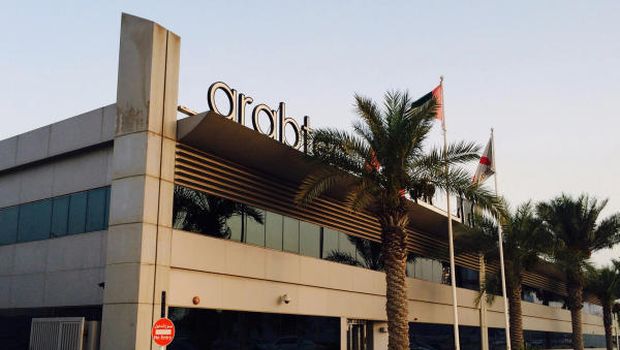
The Arabtec office building is seen in Dubai, United Arab Emirates, on Tuesday, June 24, 2014. (AP Photo/Kamran Jebreili)
Dubai, Reuters—Major Dubai construction company Arabtec retains the support of major shareholder Aabar Investments and has not cancelled any projects as a result of recent management changes and a restructuring of the firm, its chairman said on Wednesday.
Khadem Abdulla Al-Qubaisi was holding the company’s first news conference since a series of events in June shook investors’ faith in one of Dubai’s most prominent firms, slashing its share price and dragging down the entire stock market.
In early June, wealthy Abu Dhabi state fund Aabar Investments cut its stake in Arabtec to 18.94 percent from 21.57 percent, raising doubts over its willingness to support the company. Then on June 18, CEO Hasan Ismaik, who had built a 28.85-percent stake in Arabtec, abruptly resigned.
Arabtec shares plunged 70 percent from a record peak in mid-May to their intra-day low on Tuesday, erasing about 6.5 billion US dollars of value, although they began to rebound in late trade on Tuesday because of hopes that a strategic investor would be found to buy Ismaik’s stake.
Qubaisi said on Wednesday that Aabar considered Arabtec a long-term investment, and that investors had misunderstood the significance of the small reduction in Aabar’s stake. He declined to comment on Aabar’s real motive.
Aabar could even raise its stake in future, he added, without giving any indication that this was being considered.
Qubaisi also said none of Arabtec’s projects, including a 40-billion-dollar deal to build 1 million homes in Egypt over the coming years, had run into problems. The Egyptian project is a strategic deal between Egypt and the United Arab Emirates, and is almost in the design phase, he said.
However, Qubaisi said the company was in a restructuring phase and seeking to reduce costs, so it needed to focus on its core construction business, rather than oil and gas, a sector which it last year announced plans to develop.
The total value of Arabtec’s current projects inside and outside the UAE stands at 26.2 billion Emirati dirhams (7.1 billion dollars), Qubaisi added.
He declined to comment, however, on Ismaik’s stake in the company or how it might be handled.
In late June, Arabtec said it had laid off a “limited number” of staff since Ismaik left; on Wedbesday, Qubaisi said “a few people” had been let go without affecting management operations. He did not name the people.
Qubaisi predicted the company would post positive quarterly results around the end of July, reiterating that it was strong financially and that there was no plan to delist its shares from the Dubai market, as was earlier rumored.
He also insisted Arabtec was not responsible for the stock market’s 22-percent plunge in June, attributing it instead to political changes in the Middle East.
Mohamed Al Fahim, a board member from Abu Dhabi’s state-owned International Petroleum Investment Company (IPIC), the parent of Aabar, was appointed acting CEO of Arabtec after Ismaik’s departure.
